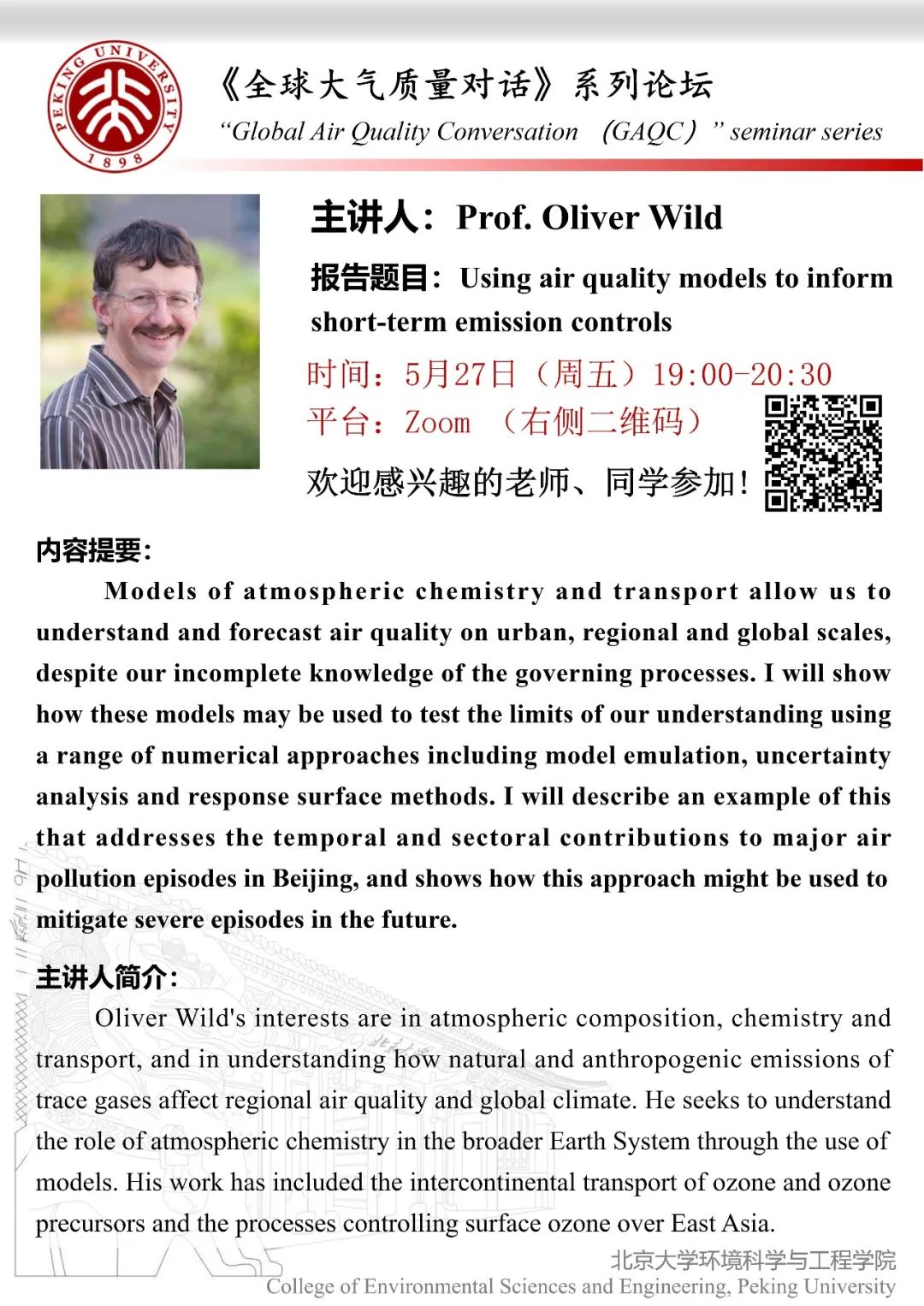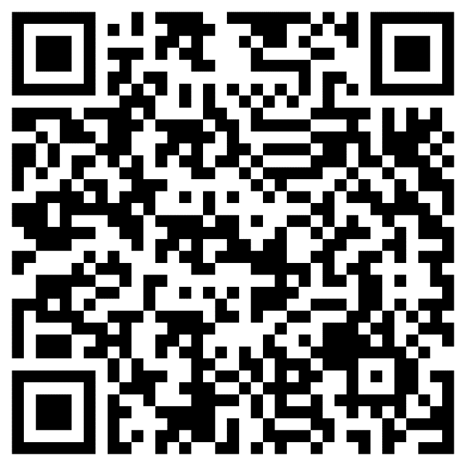[Lecture] Using air quality models to inform short-term emission controls
May. 27, 2022
Speaker: Oliver Wild
Time: 19:00-20:30, May 27, 2022 GMT+8
Venue: Zoom Meeting, Scan the QR code
Abstract:
Models of atmospheric chemistry and transport allow us to understand and forecast air quality on urban, regional and global scales, despite our incomplete knowledge of the governing processes. I will show how these models may be used to test the limits of our understanding using a range of numerical approaches including model emulation, uncertainty analysis and response surface methods. I will describe an example of this that addresses the temporal and sectoral contributions to major air pollution episodes in Beijing, and shows how this approach might be used to mitigate severe episodes in the future.
Biography:
Oliver Wild's interests are in atmospheric composition, chemistry and transport, and in understanding how natural and anthropogenic emissions of trace gases affect regional air quality and global climate. He seeks to understand the role of atmospheric chemistry in the broader Earth System through the use of models. His work has included the intercontinental transport of ozone and ozone precursors and the processes controlling surface ozone over East Asia.
Source: College of Environmental Sciences and Engineering

